Related Research Articles

The Communist Party of India (Marxist) is a communist political party in India. It is one of the national parties of India. The party emerged from a split from the Communist Party of India in 1964. The CPI(M) was formed in Calcutta from 31 October to 7 November 1964.
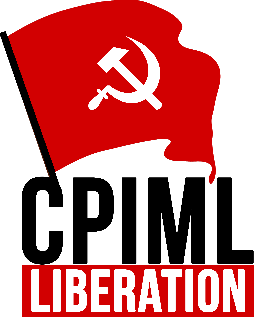
The Communist Party of India (Marxist–Leninist) Liberation, also referred to as the Liberation group, is a communist political party in India.
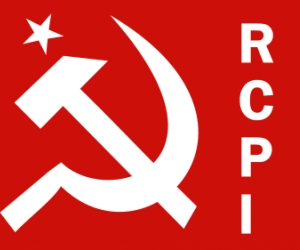
The Revolutionary Communist Party of India is a small political party in India. The party was founded as the Communist League by Saumyendranath Tagore in 1934, breaking away from the Communist Party of India (CPI). RCPI led armed uprisings after the independence of India, but later shifted to parliamentary politics. The party is active in the Kerala, West Bengal and Assam. The party was represented in the West Bengal Second United Front Cabinet (1969) as well as in various state government during the Left Front rule in the state (1977–2011). In Assam the party won four Legislative Assembly seats in 1978, but its political influence has since declined.

Jyoti Basu was an Indian politician who served as the Chief Minister of West Bengal state from 1977 to 2000. He was one of the co-founders of the Communist Party of India (Marxist) and a member of the Polit Bureau of the party since its inception in 1964 till 2008. He was noted to have been the longest serving chief minister in an elected democracy, at the time of his resignation.
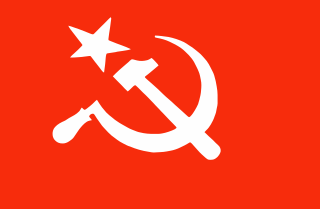
The Socialist Unity Centre of India (Communist) or SUCI(C), previously called the Socialist Unity Centre of India and "Socialist Unity Centre" is a communist party in India. The party was founded by Shibdas Ghosh, Nihar Mukherjee and others in 1948.
Politics in West Bengal is dominated by the following major political parties: the All India Trinamool Congress, Bharatiya Janta Party, the Communist Party of India (Marxist), and the Indian National Congress. For many decades the state underwent bitter political violence.
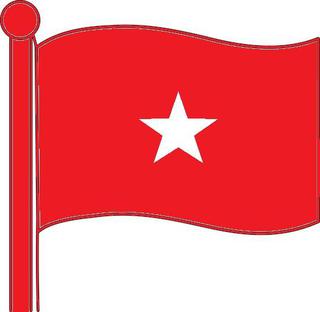
The Bolshevik Party of India is an Indian political party in India. The party was founded in 1939. The party had a certain role in the trade union movement in West Bengal and was briefly represented in the state government in 1969. In later years the party has played a negligible role in Indian politics.
The West Bengal Legislative Assembly election, 1967 was held in Indian state of West Bengal in 1967 to elect 280 members to the West Bengal Legislative Assembly. United Front led by Ajoy Mukherjee won majority of seats in the election, and formed first non-Congress government of the state.
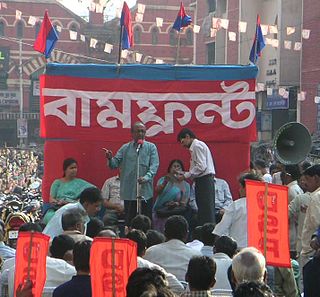
The Left Front is an alliance of political parties in the Indian state of West Bengal. It was formed in January 1977, the founding parties being the Communist Party of India (Marxist), All India Forward Bloc, the Revolutionary Socialist Party, the Marxist Forward Bloc, the Revolutionary Communist Party of India and the Biplabi Bangla Congress. Other parties joined in later years, most notably the Communist Party of India.
Legislative Assembly elections was held in the Indian state of West Bengal on 14 June 1977. The polls took place after the ousting of Indira Gandhi's government at the Centre. The Left Front won a landslide victory. The 1977 election marked the beginning of the 34-year Left Front rule in West Bengal, with Communist Party of India (Marxist) leader Jyoti Basu leading the first Left Front cabinet.
Legislative Assembly elections were held in the Indian state of West Bengal in 1982. The Left Front, which had won the 1977 West Bengal Legislative Assembly election, emerged victoriously. The Indian National Congress(I) emerged as the main opposition party in the state, as the Janata Party was disintegrating.
Barada Mukutmoni was an Indian politician, belonging to the Bolshevik Party of India. He briefly served as Minister for Tourism in the state of West Bengal.
Kanai Pal was an Indian Trotskyist politician. A labour leader active in Santipur, West Bengal, he represented the area in the state legislature 1962–1969.
Sudhindranath Kumar was an Indian politician, belonging to the Revolutionary Communist Party of India. He served as general secretary of the party 1960–1984, represented Howrah Central constituency in the West Bengal Legislative Assembly and served as Food Minister of the state in 1969 and 1977–1982.
Protiva Mukherjee (1934–2013) was an Indian politician, belonging to the Socialist Unity Centre of India (Communist).
Bhabatosh Soren was an Indian politician. He hailed from Jalguria village, Bankura District, and was a leader of the Santhal people. A lawyer by profession, Soren was a member of the West Bengal Legislative Assembly 1967–1971 and served as Minister for Forests in the state government 1969–1970.
Mohammed Abdullah Rasul, Born: 1903, Died: 21st November, 1991, was an Indian politician. He belonged to the Communist Party of India (Marxist). M.A. Rasul was a prominent leader of the peasants' movement and served as minister in the West Bengal state government for a short period in the 1960s.
Krishnapada Ghosh (1914–1987) was an Indian politician and trade unionist. He served as West Bengal Minister of Labour 1969–1970 and 1977–1985. He was a Central Committee member of the Communist Party of India (Marxist). He was also a member of the Working Committee of the Centre for Indian Trade Unions.
The Revolutionary Communist Party of India, also known as RCPI (Tagore), was a political party in India, led by Saumyendranath Tagore. RCPI (Tagore) emerged from a split in the Revolutionary Communist Party of India in 1948. RCPI (Tagore) had a very minor role in Indian politics. Tagore served as the chairman of the party. The party published the Bengali fortnightly Ganabani.
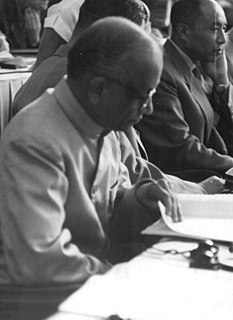
In 1964 a major split occurred in the Communist Party of India. The split was the culmination of decades of tensions and factional infighting. When India became independent in 1947, differences arose of how to adapt to the new situation. As relations between the Nehru government and the Soviet Union improved, a faction that sought cooperation with the dominant Indian National Congress emerged within CPI. This tendency was led by S.A. Dange, whose role in the party hierarchy became increasingly controversial. When the Sino-Indian War broke out in 1962 Dange's opponents within CPI were jailed, but when they were released they sought to challenge his leadership. In 1964 the party was finally divided into two, with the left faction forming the Communist Party of India (Marxist). The split had a lot of regional variations. It also impacted other organizations, such as trade union and peasant movements. The split has been studied extensively by scholars, who have sought to analyze the various domestic and international factors involved.
References
- 1 2 Communist Party of India (Marxist). West Bengal State Committee. Election results of West Bengal: statistics & analysis, 1952-1991. The Committee. p. 416.
- ↑ Suranjan Das; Premansukumar Bandyopadhyay (2004). Food Movement of 1959: Documenting a Turning Point in the History of West Bengal. K.P. Bagchi & Company. pp. xiii, 273. ISBN 978-81-7074-268-5.
- ↑ Press in India. Office of the Registrar of Newspapers. 1960. p. 470.
- ↑ Janata. 37. 1982. p. 214.
- ↑ Data India. Press Institute of India. 1982. p. 323.